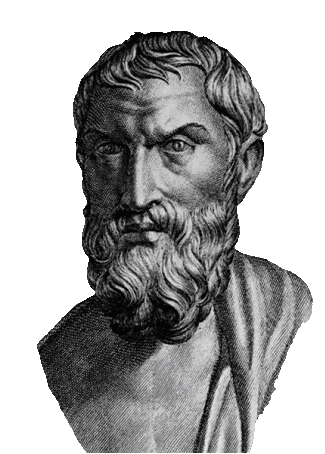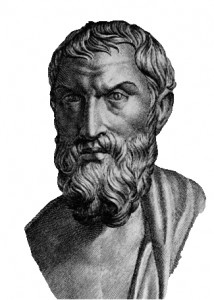Seneca’s Description of Epicurus’ “Supreme Good”
For purposes of this post I will put aside for a moment the question of whether search for a “Supreme Good” is a Stoic/Platonic rationalization of which Epicurus did or did not approve. For now, let’s look at a selection from Seneca that may help us decide whether — to the extent the discussion of a “supreme good” is useful – we should consider Epicurus’ view of it to have been “Pleasure,” or as Norman Dewitt suggests, “life” (or “life in the absence of unendurable pain”):
(Seneca’s Letters – Book II – Letter LXVI)
We find mentioned in the works of Epicurus two goods, of which his Supreme Good, or blessedness, is composed, namely, a body free from pain and a soul free from disturbance. These goods, if they are complete, do not increase; for how can that which is complete increase? The body is, let us suppose, free from pain; what increase can there be to this absence of pain? The soul is composed and calm; what increase can there be to this tranquility? Just as fair weather, purified into the purest brilliancy, does not admit of a still greater degree of clearness; so, when a man takes care of his body and of his soul, weaving the texture of his good from both, his condition is perfect, and he has found the consummation of his prayers, if there is no commotion in his soul or pain in his body.
Whatever delights fall to his lot over and above these two things do not increase his Supreme Good; they merely season it, so to speak, and add spice to it. For the absolute good of man’s nature is satisfied with peace in the body and peace in the soul. I can show you at this moment in the writings of Epicurus a graded list of goods just like that of our own school. For there are some things, he declares, which he prefers should fall to his lot, such as bodily rest free from all inconvenience, and relaxation of the soul as it takes delight in the contemplation of its own goods.
And there are other things which, though he would prefer that they did not happen, he nevertheless praises and approves, for example, the kind of resignation, in times of ill-health and serious suffering, to which I alluded a moment ago, and which Epicurus displayed on that last and most blessed day of his life. For he tells us that he had to endure excruciating agony from a diseased bladder and from an ulcerated stomach, so acute that it permitted no increase of pain; “and yet,” he says, “that day was none the less happy.”
And no man can spend such a day in happiness unless he possesses the Supreme Good.
______________________
It seems to me this selection is very supportive of DeWitt’s position. It is only the possession of a “supreme good” defined as a strength of will that can focus on health of body and mind under all but unendurable circumstances – that makes the search for pleasure possible.


